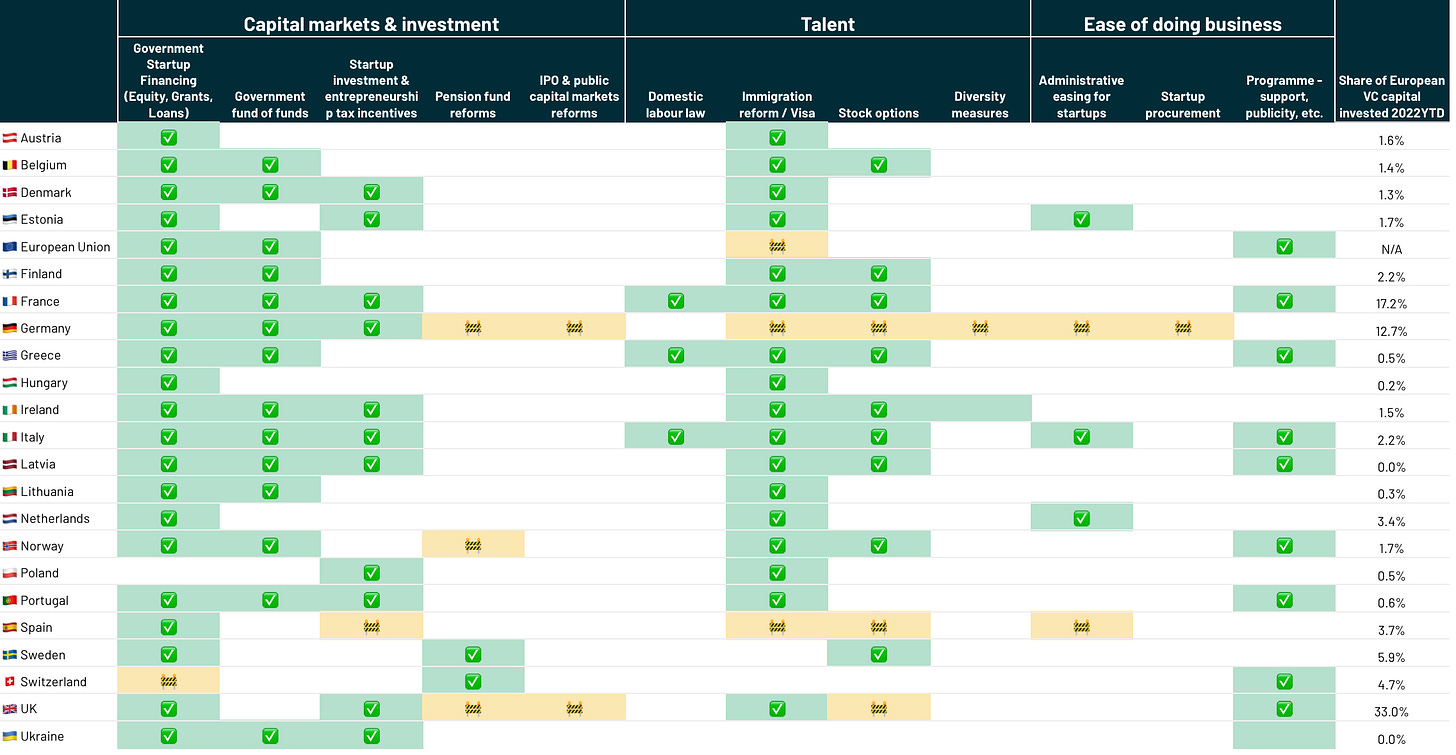The State of European Tech…and R&D
Welcome back to The Form Playbook, our newsletter supporting founders building the future of regulated markets.
Special Edition: SoET and R&D Tax Credits
It’s that time of year again: Atomico’s State of European Tech 2022 report is out. But this year, things are different.
Over the last few years, the importance of policy and regulation to Europe’s tech ecosystem has only grown. But there isn’t a good dataset on the State of European Tech Policy: the plethora of funding pots, visa schemes and support initiatives that European countries are adopting to foster startup growth across the region.
So, we teamed up with Atomico to build it. Now, for the first time, we have a clear and consistent view across European startup policy and while there's cause for optimism, there is still a huge amount of headroom.
Key takeaways:
Government funding for startups, immigration/visa reform, and stock options have been the focus of industry asks in recent years — and countries have responded.
But there’s still more countries can be doing. With precedents set by countries on almost every issue, there is little excuse for others not to fast-follow.
Every European political leader talks about the importance of supporting entrepreneurship and innovation, but while rhetoric is easy, reform is what matters.
Now, we need your help: v1 of the Atomico x Form Startup Policy Survey was compiled to give a flavour of the different policy initiatives across Europe supporting startups and VC. But we know we’ll have missed a lot of great work, too.
But we also need to be wary: while the overall direction of change is positive, backsliding is a real risk. For example, the UK has just reduced the value of its well-established R&D tax credit regime for SMEs. As the FT has reported, this will remove months of runway from the country's most innovation-intensive startups.
These are companies doing exactly what the country wants: investing heavily in R&D, raising investment to solve crucial challenges, and driving economic growth. But now the government is pulling back support, failing to distinguish between the genuine innovation carried out by these R&D-intensive startups and wider concerns over fraud and misuse from other SMEs. This is a blunt approach that will punish the country’s most innovative companies.
Get in touch if you’re an R&D-intensive company in the UK affected by the changes, or an investor who’s concerned about a portfolio company. We’re coordinating a response.





